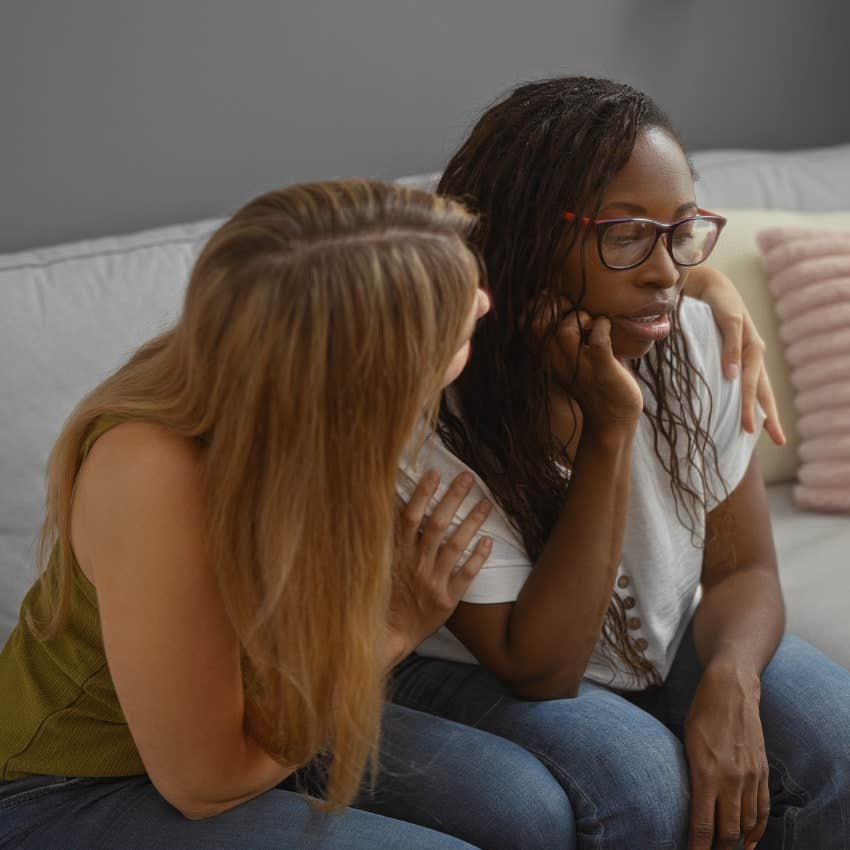3 Signs You’ve Got The Healthiest Attachment Style Out There (And Why That's So Rare And Special)
These clues reveal you've built the kind of emotional security most people only dream of.
 Ivan Kazlouskij | Unsplash
Ivan Kazlouskij | Unsplash Secure attachment relationships act as the carefully packed items within, providing a solid sense of worthiness, clear expectations, and an alliance with our bodies and emotions. You will want these in life to help you move through and face certain obstacles. Attachment expert Eli Harwood explains, "Insecure attachment experiences leave our relational backpacks without all the things we need to feel secure in ourselves and our adult relationships."
Within this metaphorical suitcase, three pivotal signs emerge as surefire indicators of a securely packed emotional toolkit, illuminating the path toward healthy and fulfilling relationships. Three things you should look out for and obtain. If you don’t have a suitcase full of all the things you need to feel securely attached, then it's time you learned a thing or two about packing your suitcase.
Here are three signs you’ve got the healthiest attachment style out there and why that's so rare and special:
1. You actively offer people care and empathy in tender or distressing moments
Imagine your suitcase has kindness and understanding inside. If you can share that with friends when they're feeling sad or stressed, it's like using the good stuff from your suitcase to make their journey easier.
Securely attached individuals intuitively respond to the emotional needs of their loved ones, creating a supportive environment that nurtures connection. This active engagement is akin to unpacking a well-prepared kit for relationship-building, reinforcing a sense of security and trust within the shared journey.
Individuals with secure attachment, who likely had a nurturing caregiver in childhood, develop self-confidence and trust, making them comfortable with intimacy and capable of forming stable, satisfying relationships. A 2022 study concluded that this comfort with intimacy allows them to recognize and respond to the needs of others with empathy and support, thereby enhancing their own well-being and relationship satisfaction.
2. You soothe easily in response to care from others
 Krakenimages.com / Shutterstock
Krakenimages.com / Shutterstock
In your suitcase, there's a cozy blanket of comfort. If someone's care makes you feel warm and comfy, it's like using that blanket to feel better — a sign your suitcase is set up well.
This signifies emotional resilience and an openness to being comforted, akin to finding the perfect tools for self-soothing. The capacity to be soothed becomes an essential item in the suitcase, contributing to emotional well-being and creating a reciprocal cycle where both partners feel secure in expressing vulnerability and offering support.
Research shows that these individuals are confident that they can rely on others and that their emotional needs will be met, which allows them to process stress and emotions constructively. Individuals with insecure attachment styles may struggle to find comfort in others or fear rejection, making it harder for them to accept support and manage stress.
3. You actively reach out to your close people when you are feeling tender or distressed
Think of your suitcase having a friendly flashlight. If you're not feeling great, you can reach out to pals for support; it's like shining that friendly light and letting them know what's going on.
In a securely attached individual, this proactive approach to seeking comfort and support is a natural response, akin to having a well-organized compartment for emotional expression.
Actively reaching for loved ones not only fosters intimacy but also communicates a willingness to share one's emotional state openly, promoting a deeper understanding and connection.
If these don’t match your relational patterns, it’s probably time to put in some work to develop a secure attachment pattern! The most important thing to have in your relational luggage is your own ability to reach out to people.
"One of the most pervasive and toxic relationship problems I have seen between partners, friends, and family members is that many people do not know how to effectively reach out to others when they are feeling vulnerable," says Harwood.
"This lack of effective reaching is rooted in insecure attachment. Securely attached children reach for their caregivers when they are in distress, and securely attached adults reach for their people, sweethearts, and besties when they are feeling tender or emotionally dysregulated," Harwood writes in an Instagram caption.
She continues, "Reaching for our people does not burden them if we reach freely and, in fact, it builds intimacy and increases our bond with one another. But we need to reach out with our needs overtly shared and then allow ourselves to be soothed by the care our people offer us (as long as they do, in fact, offer care).
If this sounds foreign to you, it might be because it is foreign in your life. If you did not have emotionally warm and connected parents, you stopped reaching for them very young (the research says likely you stopped bidding for connection in tender moments before you were even one year old). This can still be learned!"
Individuals with anxious attachment might fear abandonment and crave validation, leading to clinginess and anxiety when they don't receive constant reassurance. They might feel overwhelmed by distress and seek excessive attention, one study found.
The key is to be open to change and get out of your comfort zone to be vulnerable and grow. You may not have come into adulthood with a well-packed emotional suitcase, but you can certainly add all the healthy things you need to it now.
Deauna Roane is a writer and former editorial project manager for YourTango. She's had bylines in Emerson College's literary magazine, Generic, and MSN.

